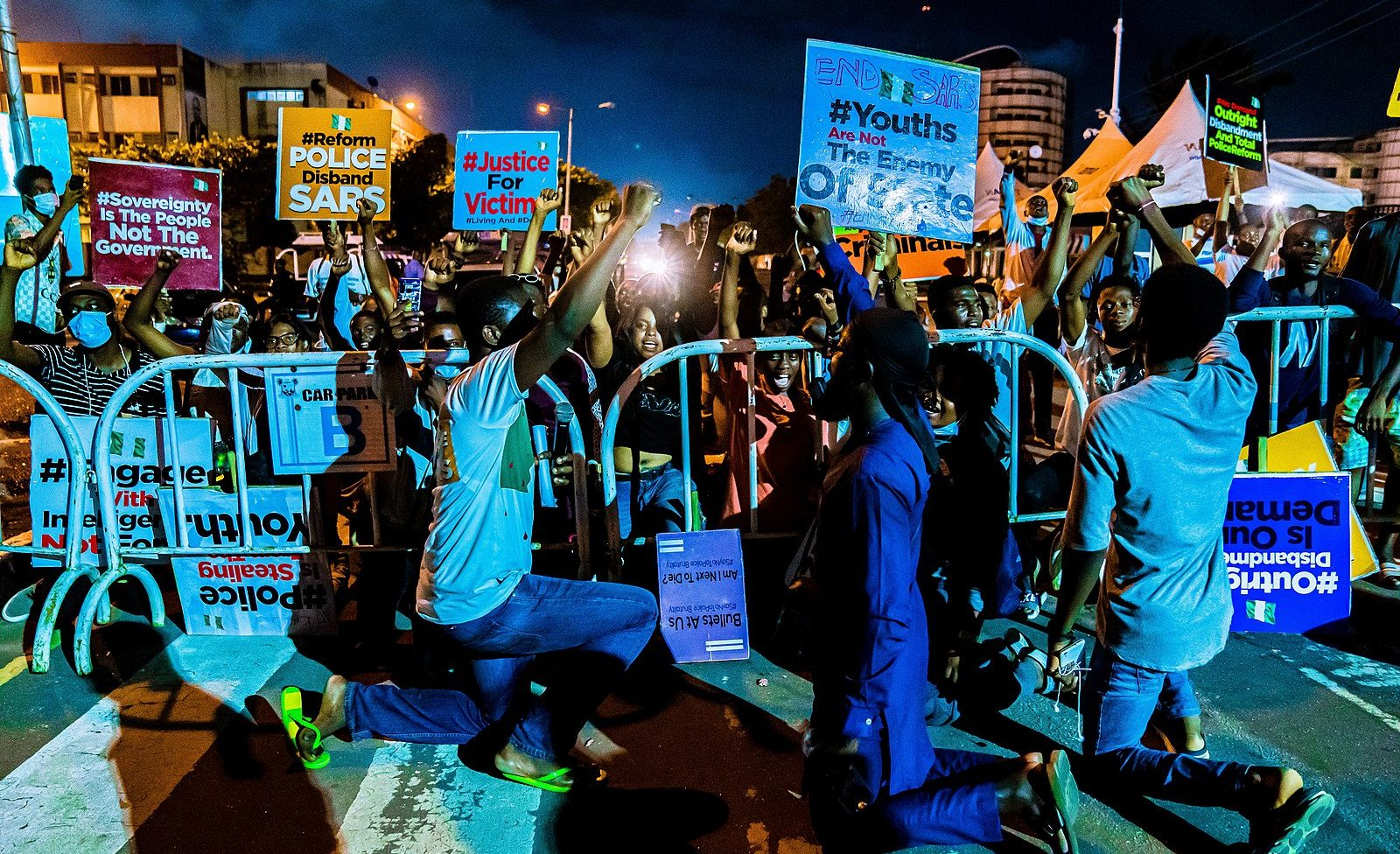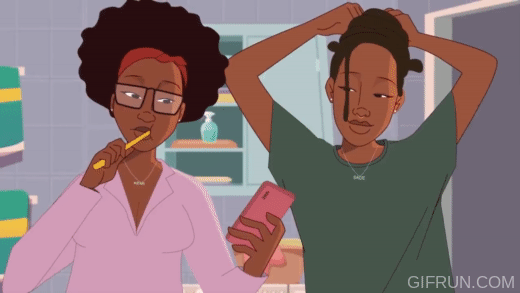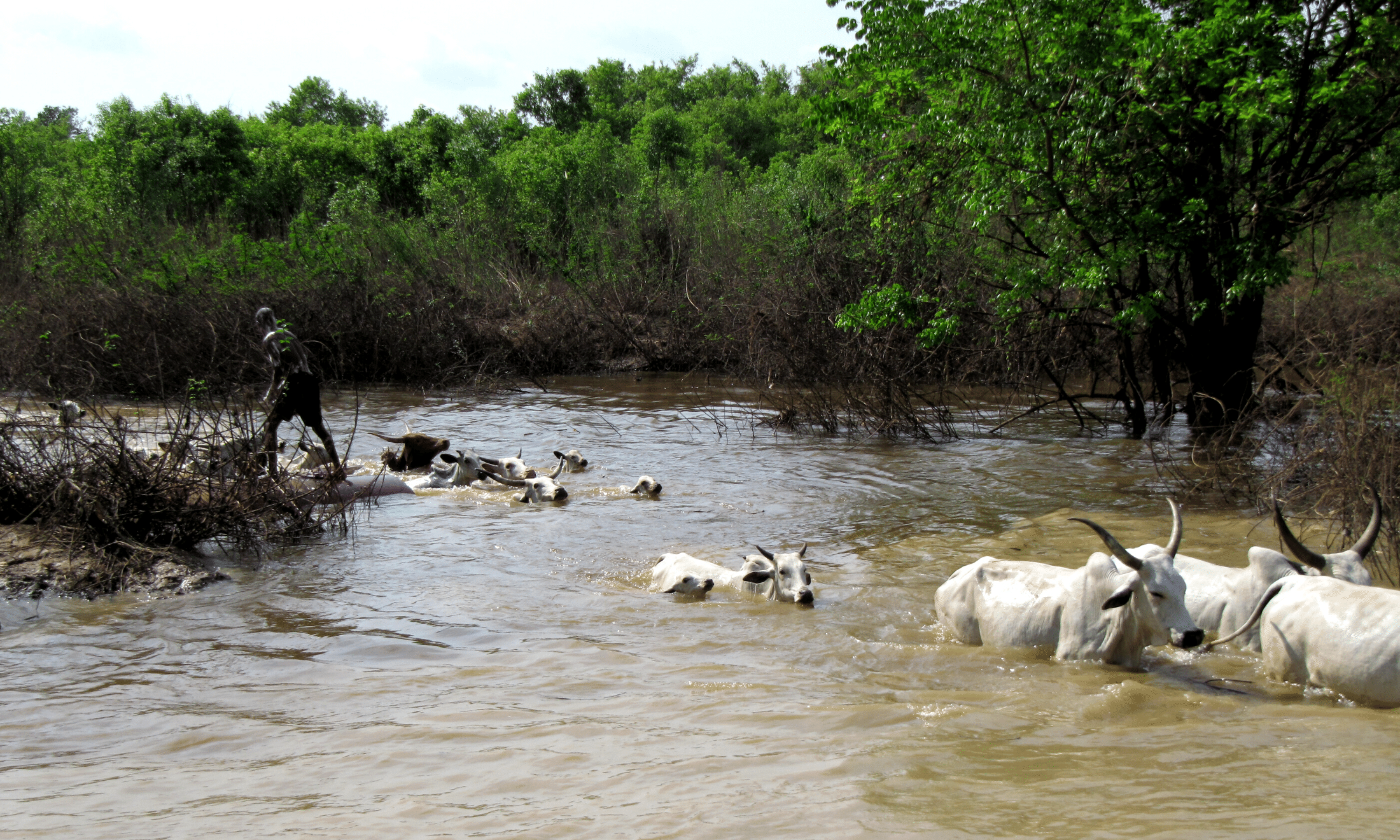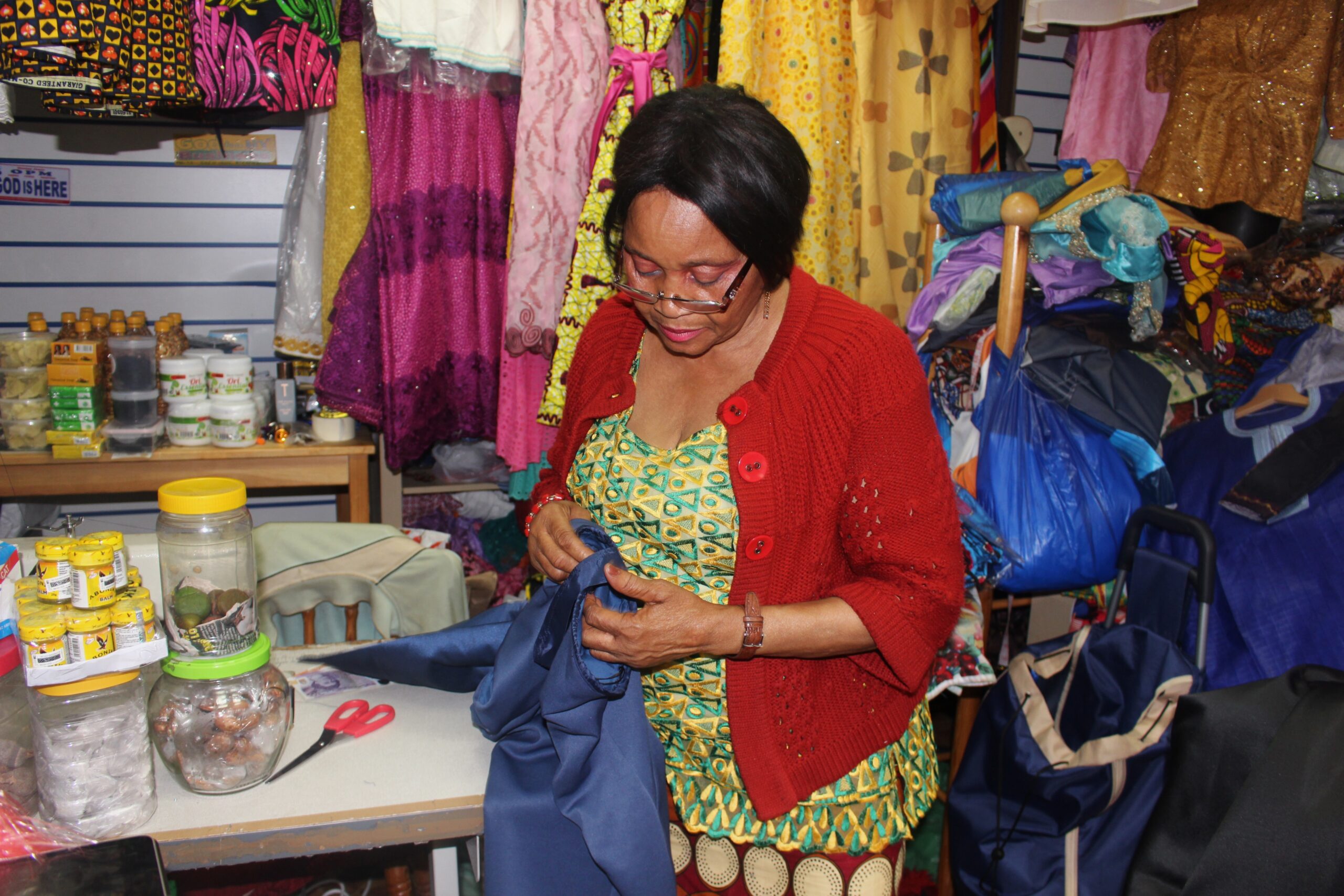
Photography via Creative Commons / Tobi James Candds
The Lekki massacre has only reaffirmed my commitment to #EndSARS
Lekki local Tami Makinde reflects on the bloodshed unfolding on her doorstep.
Tami Makinde
22 Oct 2020
Trigger warning: this article contains mentions of violence and death
This year has been exhausting for black people globally. After the Black Lives Matter protests earlier this summer, black lives continue to be threatened, even within our own homelands. Democratic Republic of the Congo is experiencing endless violence, Liberia has a rape crisis and my home, Nigeria is slaughtering its young people, because we dared to ask for better treatment.
Just days ago, #EndSARS protesters decided to block major highways and toll gates in the country’s megacity, Lagos, but Nigeria’s armed forces met them with weapons, ready for bloodshed. As I scrolled through my timeline in tears, it became clearer with each graphic image that justice was not a tangible concept. Young people were being killed in real-time and law enforcement did not intervene because they were the ones murdering us.
At about noon on Tuesday, Lagos State Governor, Babajide Sanwo-Olu declared a 24-hour curfew beginning at 4pm following a series of violent attacks from alleged state sponsored thugs in the city. This spelled disaster for the young Nigerians who had been out protesting for over 12 days. While commuters hurried home to meet the curfew, protesters in Lekki, an affluent area of Lagos, bravely refused to leave and staged a sit-in at the tollgate. For those unfamiliar with the area, Lekki is colourfully painted at every turn with nightclubs, bars, commercial shops, restaurants, and residential areas.
When night fell, the tollgate lights were surreptitiously cut off and in seconds, peaceful protesters waving the Nigerian flag, usually emblematic of peace, were shot by Nigerian soldiers. It was the last location anyone expected for such an atrocity to take place in.
“Young people were being killed in real-time and law enforcement did not intervene because they were the ones murdering us”
Days before the attack, the Nigerian Army had announced its plan to commence a nationwide exercise known as Crocodile smile – a cyber warfare operation designed to identify and counter negative propaganda on social media. Many people like me panicked at this announcement and rightly so, as the army is notorious for using unlawful force on citizens. But what followed next can only be described as a massacre, the likes of which many young Nigerians have never seen in their lifetime. As I tried to process the trauma, friends and family abroad repeatedly called at intervals making sure we were all safe at home. I was, but many other young Nigerians weren’t so lucky.
According to witness accounts, more than 20 soldiers arrived at the scene and opened fire on protesters, barricading them in at both ends and restricting movement from privately-funded ambulance services. In another account by Akinbosola Ogunsanya, the bodies of the dead were carted away by soldiers. However, the official Twitter account of the Nigerian Army has denied responsibility for these attacks, accusing local and international media of disseminating “fake news” despite concrete video evidence. I feel angry and gaslit. How is it possible to completely disregard live footage that shows armed officers firing directly into a crowd of protesters? And seeing as officials are used to covering up their crimes, young Nigerians are having to make the traumatic decision to amplify all graphic video evidence across their social media platforms. Right now, it’s the only thing we can do to get our truth heard.
Amnesty International officially has confirmed 12 people dead but videos circulating social media are hinting at many more deaths – some alleging numbers as spine-chilling as 70. That night, I stayed glued to social media, burdened with the guilt that looking away for just one second would be an injustice to the brave souls lost already. The protesters’ deaths are not just statistics, these were young people like me who longed for a better Nigeria.
“Even if state broadcasters play everything down, the revolution will be tweeted”
Just yesterday, shocking news of Oke-Obi Enadhuze’s murder reached us online. Hours before his senseless death, the young Nigerian tech designer tweeted the words “Nigeria will not end me”. Like many others, I grieved alongside his girlfriend even though I never knew him. Loss in the age of social media has a way of endlessly reverberating through the timeline.
As we watched chaos erupt in Lekki, several other areas in Lagos were attacked by police officers and hoodlums. There were reports from Yaba, Ikorodu, Ketu, Surulere, Mushin, Ajah and Isale Eko where four people have been announced dead. The governor described the Lekki massacre as an “unfortunate shooting incident at Lekki” and minimised the fatalities in a televised broadcast. But for me, the attacks look premeditated.
This time it won’t be so easy for the government to get away with this – the eyes of the whole world are on us. Video evidence is being collated and there are many calls for President Muhammudu Buhari to be charged for crimes against humanity at the International Criminal Court. Even if state broadcasters play everything down, the revolution will be tweeted.
As night falls again in the city, I can’t help but feel panicked at the thought of armed forces getting up to something awful in another part of the country. Currently, the atmosphere is thick with ire and there’s a general mood that things will get worse before they get better. The government made a fatal error in thinking the protests were solely about the #EndSARS movement. We are now turning into the monsters they made.









